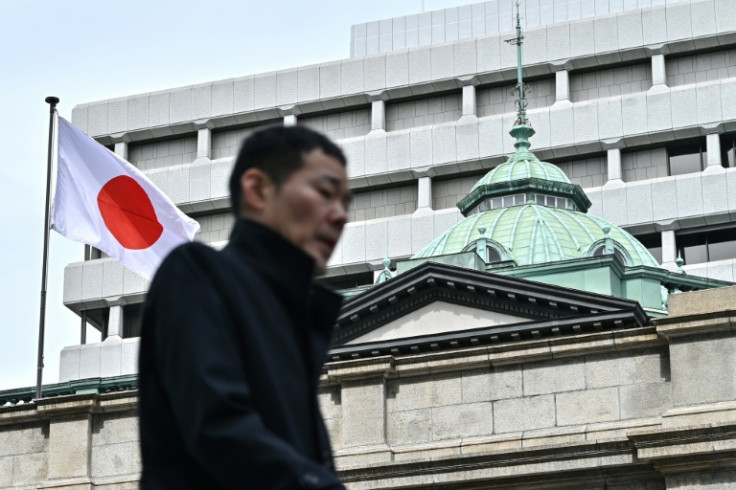Japan Economy Suffers Worse-than-expected Contraction Of 0.5%

Japan's economy suffered a worse-than-expected contraction in the first quarter, official data showed Thursday, in further bad news for its unpopular government.
Gross domestic product in the world's number four economy shrank by 0.5 percent against market expectations of a drop of only 0.3 percent.
Exports dived 5.0 percent, after growing 2.8 percent the previous quarter, while imports fell 3.4 percent.
Compared with the first quarter of 2023, GDP fell an annualized 2.0 percent compared with a forecasted drop of 1.2 percent, according to Bloomberg News.
The economy was hit by a major earthquake on January 1 on the Noto peninsula and by halts in production at auto giant Toyota's Daihatsu subsidiary.
Japan has been flirting with recession since last year, with zero growth -- revised Thursday from an expansion of 0.1 percent -- between October and December.
In the previous quarter, from July to September, GDP suffered a major contraction of 0.9 percent, also revised on Thursday from an earlier reading of minus 0.8 percent.
The new data will add to pressure on Prime Minister Fumio Kishida and his government, which for months has seen poor poll ratings.
Germany replaced Japan as the number three economy in 2023 -- in large part because of the weak yen -- and is projected to be overtaken by India too.
For decades, Japan has battled stagnant growth and deflation as well as a rapidly ageing population.
Inflation, however, has picked up, allowing the Bank of Japan in March to call time on its maverick monetary policy and raise interest rates for the first time in 17 years.
Rates elsewhere remain higher however and the wide differential has added to pressure on the yen, which in recent weeks has hit three-decade lows against the dollar.
In late April and early May, the yen briefly rose sharply against the greenback, prompting speculation that Japan had intervened in the market.
Japan's currency was once regarded as a safe haven, expected to rise in value in times of global turmoil.
But that has not proved true in recent years, with the yen cratering from around 115 per dollar before Russia's February 2022 invasion of Ukraine to 160 last month.
A weaker yen is good for Japanese exporters and foreign visitors, but it makes imports and foreign travel for outbound tourists more expensive.
"The BOJ can't ignore these GDP numbers. This is not at all the kind of situation where they can raise interest rates again right away," said Nobuyasu Atago, chief economist at Rakuten Securities Economic Research Institute, quoted by Bloomberg.
"I don't think they can move in July. They will have to wait for second quarter GDP data to come out in August."
© Copyright AFP 2025. All rights reserved.





















